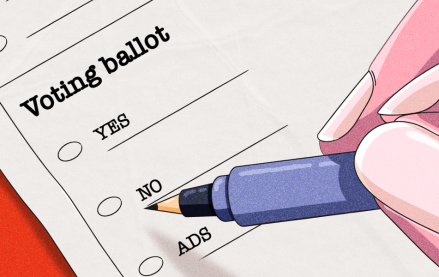Ramsey McGrory on the Open vs Closed Battle in Digital Advertising
Why leave Yahoo for Clearspring?
It starts with the people. I’d looked at a number of other opportunities at larger and smaller companies. This had the best team. It was also the product and the position in market. Clearspring with AddThis is by far a leader in the social sharing space. The advertising business and data licensing business were things I’d begun to build at Yahoo but because of competing priorities I had a tough time executing. This space of data and social is early. If you look at what’s happening in the media space, you have Google consolidating its infrastructure to create a semi-closed environment, then you have this open alliance of Microsoft, AOL, Yahoo and the big move of Mediabank and Donovan. I felt like in a space where media is consolidating on one of several platforms what matters is who has what data and what they can do it.
Should the industry worry about Google amassing too much power in the emerging display ad infrastructure?
I think the battles of open vs closed happen in many industries. Look at the operating system market. You have the closed system of Apple versus the open system of Windows. There are pluses and minuses to both. That same battle is happening in the digital advertising space. Google is acquiring the technology, building technology and integrating all of this to create the simple buying platform. I think you have the more open strategy of the Mediabank-Donovan combination or the more open strategy of Yahoo. There are pluses and minuses to both. We’ll have to operate in both worlds. We’re going to have to operate in both. Our goals are the same if it’s a closed or an open environment.
Yahoo gets knocked around quite a bit. You’re not as down on the company’s future prospects. Why?
The narrative on Yahoo in Northern California and New York is very different from the rest of the world. The rest of the world votes with their fingers when they go to Yahoo. They still have 680 million users. And it’s growing. There’s a ton of data there, more data than any other company in that comparable space: 140 million addressable consumers. The narrative on Yahoo has been terrible for the last couple years. There are huge and great assets and great people. Some people report all the exists and say Yahoo is a fucked-up company. But when those same people show up at a new company, it’s great because they had Yahoo experience. There have been a lot of mistakes in the past but there are a lot of great things at Yahoo. If someone does end up acquiring it, they have great assets and great long-term opportunities.
Is the ad-tech market still too complex?
There’s remaining complexity in the market. The VC money that’s funded a lot of sub-segments that may not exist as standalone companies is increasing. There needs to be a simplification in the media buying process. You have to get to a set of standards people are comfortable with and can build their businesses around. We have to decrease the general complexity. There will be consolidation over time and marketers will demand simplification — we’ll get there. It’s an evolutionary process that will play out over five to 10 years.
Clearspring uses data it collects from publisher sites through its sharing tools. Should publishers worry about data leakage?
Our value proposition has be clear whether with buyers or sellers. To date Hooman and team have done a great job doing that. At an industry level publishers are getting smarter about data leakage. It’s being addressed at the IAB, DMA and NAI. I’m on the ethics policy committee to the DMA and was involved in writing the policy. It’s very important we get to a level of clarity that allows publishers to engage in a way that they feel comfortable. We’re going to continue to work on that at a business level and industry level.
More in Media

Publishers revamp their newsletter offerings to engage audiences amid threat of AI and declining referral traffic
Publishers like Axios, Eater, the Guardian, theSkimm and Snopes are either growing or revamping their newsletter offerings to engage audiences as a wave of generative AI advancements increases the need for original content and referral traffic declines push publishers to find alternative ways to reach readers.

The Guardian US is starting its pursuit of political ad dollars
The Guardian US is entering the race for political ad dollars.

How much is Possible’s future in Michael Kassan’s hands?
Some people in the know at Possible said they see the conference taking a bite out of Cannes’ attendance, most acutely by U.S.-based marketers who could save money by staying on this side of the Atlantic.





